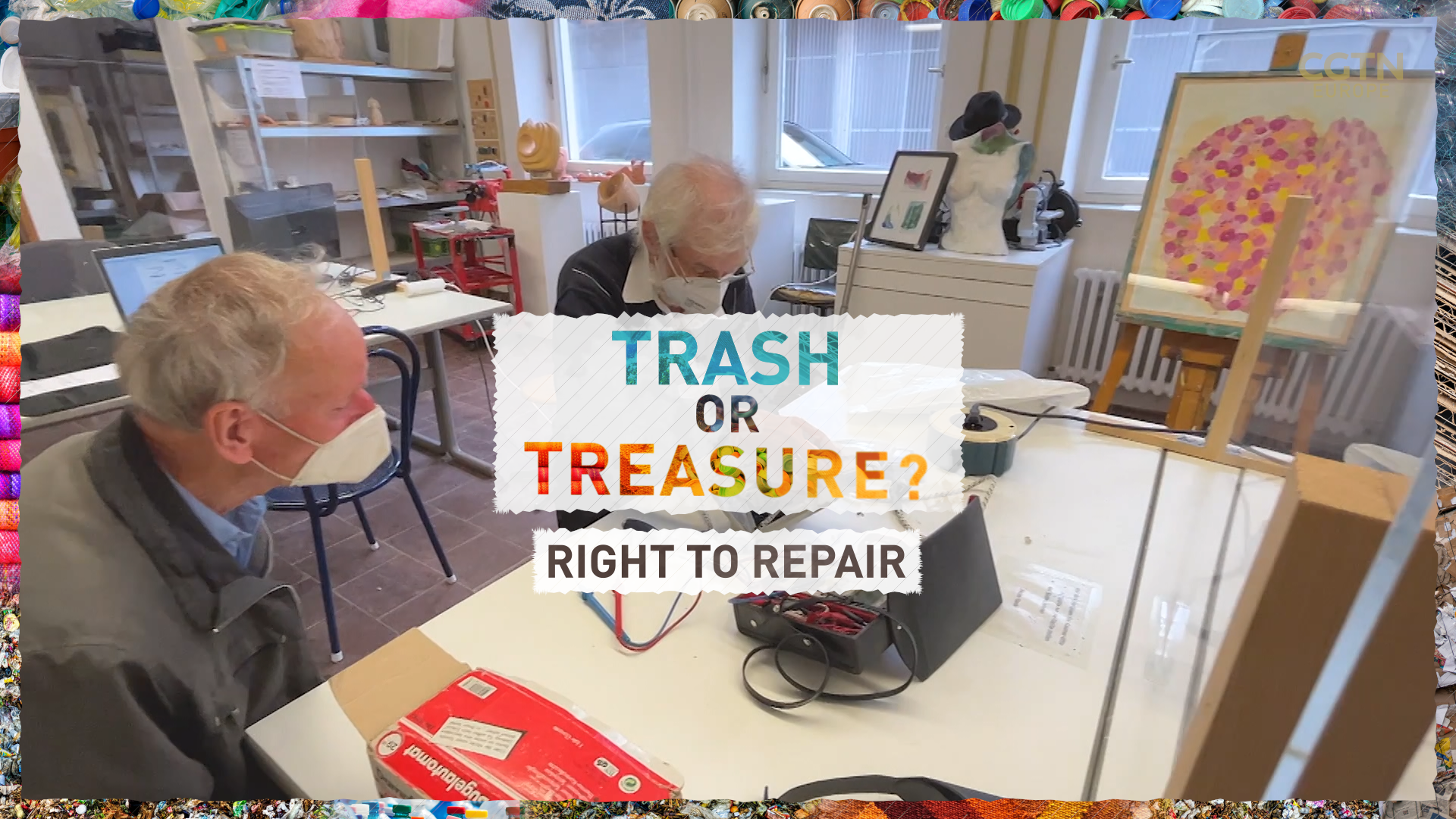03:27

What do you do with electronic devices and appliances that no longer work? Do you get them fixed or throw them out and buy new ones?
Repairing old items can be costly, time consuming or even impossible, while throwing them out can damage the environment.
Some manufacturers make replaceable parts scarce or don't release repair information, says Chloé Mikolajczak, a campaigner for the European Right to Repair movement, which is advocating for legislation that would make it easier to repair broken items.
"Manufacturers have put up so many barriers and so many challenges to repair old products," she tells CGTN. "That means for a lot of consumers, they either can't repair it or for a very expensive price (making) buying something new all the more interesting."
READ MORE
Triceratops skeleton sells for $7.7m
The mystery space noise puzzling scientists
CO2 'dangerously past' agreed levels says UN
However, while buying new might feel exciting, the environmental impact is noticeable. The majority of the damage done to our atmosphere by small electronics occurs during the energy-intense manufacturing phase. It also consumes new resources and raw materials.
Furthermore, according to the United Nations, we generate around 50 million tons of electronic waste or e-waste every year and less than 20 percent of that is recycled, meaning that old microwave oven is likely to sit in a landfill for decades.

E-waste is often toxic. /CGTN
E-waste is often toxic. /CGTN
Repair Cafes
This drive to repair old items has manifested in the growth of community "repair cafes" all across Europe. In Germany alone, there are more than a thousand of these events, at which capable volunteers offer their time to try and fix their community's broken gadgets.
Anything from old sewing machines, lamps and TVs are given a chance at a second life, says Brigitte Fingerle-Trischler, who is the organizer of a repair cafe in Munich.
"The range is actually quite wide," she says. "Our repairers are very happy to do electrical things, e.g., irons and vacuum cleaners. It is very important to us that this possibility exists at all, that one thinks they should try to repair it before throwing it away."
One of those repairers is Hans Gall, a radio frequency engineer who has been tinkering with things since he was a child and has managed to repair Joseph's old power drill in a matter of minutes – "A simple fix," he says, "that will give the drill 10 years or more of good service."

On a Saturday in Munich, community members gather to repair their items. /CGTN Europe
On a Saturday in Munich, community members gather to repair their items. /CGTN Europe
Legislation
Yet on individual national levels, some progress is being made. For instance, France has introduced a Repairability Index, which forces some manufacturers to display a repairability score between 1 and 10 on their products. And some Austrian states have begun offering consumers a 50 percent subsidy towards the cost of repair. Yet other EU countries are lagging behind, says Katrin Meyer from Germany's round table for repair.
"We saw how quickly France was able to develop such an index and we already see that manufacturers changed their policies by publishing more information than they did before in order to receive more points on this repair score. We would love to see it on an EU level."
The European Commission agrees that regulating manufacturers will have a significant environmental impact, but presenting legislation that manufacturers will also accept is a challenge, says Mikolajczak.
"The big tech companies are coming in with a lot of money to Brussels to lobby discussion makers," she says. But once designed, that legislation is likely to have a broader reach.
"Manufacturers are not going to start making one repairable product for the EU and one non-repairable product for the rest of the world, argues Mikolajczak. "These laws, if they are ambitious enough, will truly have global implications."

